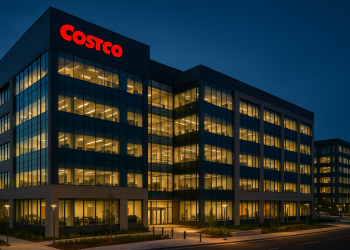No products in the cart.
Navigating the AI Landscape: Opportunities and Challenges for Gen Z Workers
Explore how AI is transforming job prospects for Gen Z, enabling new opportunities while presenting unique challenges in a competitive job market.
Navigating the AI Landscape: Opportunities and Challenges for Gen Z Workers
As artificial intelligence continues to evolve, its influence on the job market is becoming increasingly pronounced, particularly for the tech-savvy Generation Z. While AI offers unprecedented opportunities for innovation and efficiency, it is also creating a competitive landscape that can be daunting for young professionals seeking to establish their careers.
Recent reports, including a piece from The Washington Post, highlight the dichotomy facing Gen Z: a generation that is inherently comfortable with technology yet struggling to find their footing in an AI-dominated job market. With many fields experiencing seismic shifts due to automation, the question looms: Can Gen Z capitalize on these advancements, or will they be left behind?

AI’s Role in Shaping Careers
AI is not merely a tool; it is a catalyst reshaping industries, particularly in software engineering. According to various industry analyses, roles that once demanded extensive manual labor are increasingly being augmented—or even replaced—by AI technologies. For Gen Z, who are often more adept at navigating these new tools, this can mean exciting prospects. However, the challenge lies in the need for continuous learning and adaptation.
“The skill set required today is evolving rapidly,” notes Dr. Emily Chang, a labor market analyst. “Gen Z needs to be not only familiar with AI technologies but also understand how to leverage them creatively in their work.” This sentiment is echoed across various sectors, from marketing to engineering, where the integration of AI is becoming a prerequisite for job seekers.
However, the challenge lies in the need for continuous learning and adaptation.
The Job Hunt: A New Kind of Competition
Despite the promise of AI, Gen Z faces significant hurdles as they navigate the job market. With automation streamlining processes, the number of entry-level positions has diminished. Many organizations are now seeking candidates who not only possess technical skills but also demonstrate critical thinking and problem-solving abilities. This has intensified competition among applicants, leading to a saturated job market where standing out is more crucial than ever.
Furthermore, the reliance on AI in the hiring process can also complicate the situation. Many companies employ AI-driven applicant tracking systems that filter resumes before they even reach human eyes. Gen Z applicants must be strategic in how they present their qualifications, ensuring their resumes are optimized not just for human recruiters but also for automated systems.
Balancing Automation with Human Touch
While AI brings efficiency, it also raises questions about the value of human creativity and empathy in the workplace. “There is a fear that as AI takes over more tasks, the human element will be lost,” says John Lee, a career coach. “For Gen Z, it’s essential to emphasize soft skills, which AI cannot replicate.”
In this shifting landscape, internships and early career experiences that emphasize collaboration, creativity, and emotional intelligence are becoming invaluable. Programs that blend traditional learning with hands-on experience in AI applications can equip Gen Z with the tools they need to thrive.
Looking Ahead: Preparing for the Future
As we look to the future, it is clear that the relationship between Gen Z and AI will continue to evolve. Educational institutions, employers, and policymakers must collaborate to create pathways that ensure young workers are not only prepared for the current job market but also adaptable to future changes.
“For Gen Z, it’s essential to emphasize soft skills, which AI cannot replicate.”
Ultimately, the success of Gen Z in the workforce will depend on their ability to harness the power of AI while maintaining the unique qualities that define human work. As they step into this new era, their journey will undoubtedly shape the future of work for generations to come.











